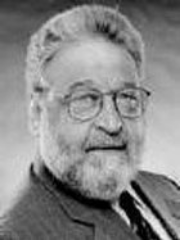Difference between revisions of "Arnold Horelick"
(add image+) |
|||
| Line 3: | Line 3: | ||
|cspan=https://www.c-span.org/person/?arnoldhorelick | |cspan=https://www.c-span.org/person/?arnoldhorelick | ||
|amazon=https://www.amazon.com/s/ref=dp_byline_sr_book_1?ie=UTF8&text=Arnold+Lawrence+Johnson%2C+A.+Ross%2C+%3B+Steinbruner%2C+John+D.%2C+Horelick | |amazon=https://www.amazon.com/s/ref=dp_byline_sr_book_1?ie=UTF8&text=Arnold+Lawrence+Johnson%2C+A.+Ross%2C+%3B+Steinbruner%2C+John+D.%2C+Horelick | ||
| − | | | + | |alma_mater=Harvard University, Rutgers University |
| − | |description=Spooky, | + | |description=Spooky [[RAND]] analyst. In [[1986]] he wrote a paper ''Soviet Foreign Policy Under Gorbachev'', which was also a theme of the [[1986 Bilderberg meeting]] he attended. |
|linkedinhttps://www.linkedin.com/in/arnold-horelick-3a7122a6 | |linkedinhttps://www.linkedin.com/in/arnold-horelick-3a7122a6 | ||
|nationality=US | |nationality=US | ||
| + | |image=Arnold Horelick.png | ||
|interests=USSR | |interests=USSR | ||
|birth_date= | |birth_date= | ||
| Line 18: | Line 19: | ||
|start=1959 | |start=1959 | ||
|end=1997 | |end=1997 | ||
| − | |description=Interrupted for | + | |description=Interrupted for work as intelligence officer 1977-1980. }} |
| − | }}'''Arnold Horelick''' | + | }}'''Arnold Horelick''' was a spooky [[Soviet Union]] expert at [[RAND]] and the [[Carnegie Endowment]].<ref>https://carnegieendowment.org/people/arnold-horelick?lang=en</ref><ref>https://www.rand.org/pubs/authors/h/horelick_arnold_l.html</ref><ref>http://www.luxembourgforum.org/en/structure/horelick-arnold/</ref> In 1986 he wrote a paper ''Soviet Foreign Policy Under [[Gorbachev]]''<ref>https://www.rand.org/pubs/occasional_papers-soviet/OPS009.html</ref>, which was also a theme of the [[1986 Bilderberg meeting]] he attended. |
| + | |||
==Activities== | ==Activities== | ||
From 1983 to 1989, he was the founding director of the RAND/UCLA Center for Soviet Studies. | From 1983 to 1989, he was the founding director of the RAND/UCLA Center for Soviet Studies. | ||
| − | == | + | ==Soviet Foreign Policy Under [[Gorbachev]]== |
| − | + | {{QB|This paper considers Soviet foreign policy under [[Gorbachev]]. Gorbachev's first priority in foreign policy is to consolidate weak or threatened positions. He will be selective about making new commitments and sensitive to the economic and political costs of making bad choices. He has initiated the most thorough and far-reaching reorganization of the Soviet foreign policymaking structure since [[World War II]], and has blurred the division of labor between the [[USSR/Ministry/Foreign Affairs|Ministry of Foreign Affairs]] and the [[CPSU|Communist Party]]'s International Department. This restructuring indicates a downgrading in the priority of the [[Third World]] in Soviet foreign policy. The [[United States]] remains at the center of Gorbachev's foreign policy, and arms control at the center of his American policy. Failure by the United States and by [[NATO|the Western alliance]] to agree on a common strategy for dealing with the Soviet Union in the Gorbachev era could mean losing the opportunity either to pressure the [[Soviet Union]] effectively or to deal with it profitably.<ref>https://www.rand.org/pubs/occasional_papers-soviet/OPS009.html</ref>}} | |
| + | |||
| + | |||
{{SMWDocs}} | {{SMWDocs}} | ||
==References== | ==References== | ||
{{reflist}} | {{reflist}} | ||
{{Stub}} | {{Stub}} | ||
Revision as of 10:25, 29 June 2024
(spook, deep state operative?) | ||||||||||||||
|---|---|---|---|---|---|---|---|---|---|---|---|---|---|---|
 | ||||||||||||||
| Nationality | US | |||||||||||||
| Alma mater | Harvard University, Rutgers University | |||||||||||||
| Member of | Council on Foreign Relations/Historical Members, International Institute for Strategic Studies | |||||||||||||
| Interests | USSR | |||||||||||||
Spooky RAND analyst. In 1986 he wrote a paper Soviet Foreign Policy Under Gorbachev, which was also a theme of the 1986 Bilderberg meeting he attended.
| ||||||||||||||
Arnold Horelick was a spooky Soviet Union expert at RAND and the Carnegie Endowment.[1][2][3] In 1986 he wrote a paper Soviet Foreign Policy Under Gorbachev[4], which was also a theme of the 1986 Bilderberg meeting he attended.
Activities
From 1983 to 1989, he was the founding director of the RAND/UCLA Center for Soviet Studies.
Soviet Foreign Policy Under Gorbachev
This paper considers Soviet foreign policy under Gorbachev. Gorbachev's first priority in foreign policy is to consolidate weak or threatened positions. He will be selective about making new commitments and sensitive to the economic and political costs of making bad choices. He has initiated the most thorough and far-reaching reorganization of the Soviet foreign policymaking structure since World War II, and has blurred the division of labor between the Ministry of Foreign Affairs and the Communist Party's International Department. This restructuring indicates a downgrading in the priority of the Third World in Soviet foreign policy. The United States remains at the center of Gorbachev's foreign policy, and arms control at the center of his American policy. Failure by the United States and by the Western alliance to agree on a common strategy for dealing with the Soviet Union in the Gorbachev era could mean losing the opportunity either to pressure the Soviet Union effectively or to deal with it profitably.[5]
Event Participated in
| Event | Start | End | Location(s) | Description |
|---|---|---|---|---|
| Bilderberg/1986 | 25 April 1986 | 27 April 1986 | Scotland Gleneagles Hotel | The 34th Bilderberg, 109 participants |
References
- ↑ https://carnegieendowment.org/people/arnold-horelick?lang=en
- ↑ https://www.rand.org/pubs/authors/h/horelick_arnold_l.html
- ↑ http://www.luxembourgforum.org/en/structure/horelick-arnold/
- ↑ https://www.rand.org/pubs/occasional_papers-soviet/OPS009.html
- ↑ https://www.rand.org/pubs/occasional_papers-soviet/OPS009.html